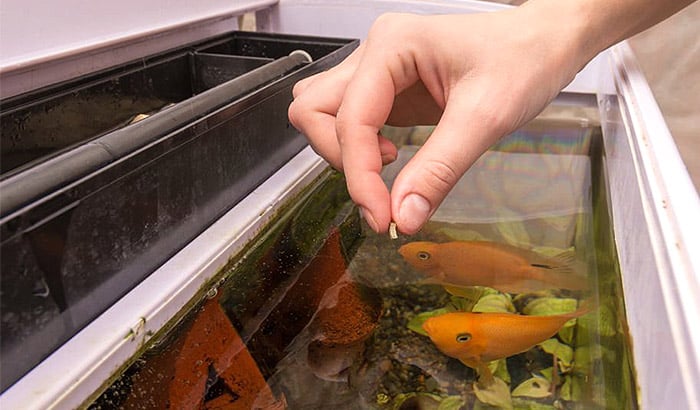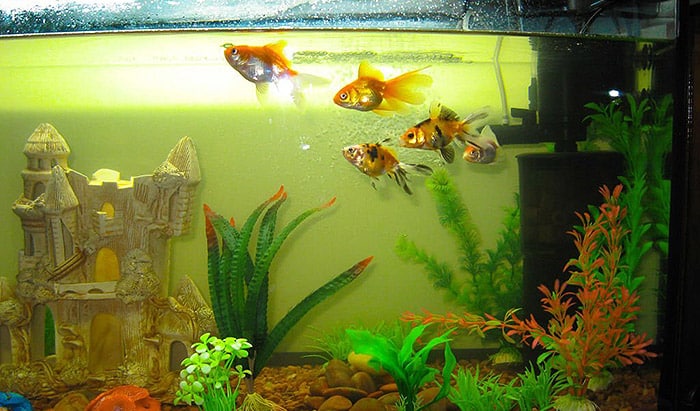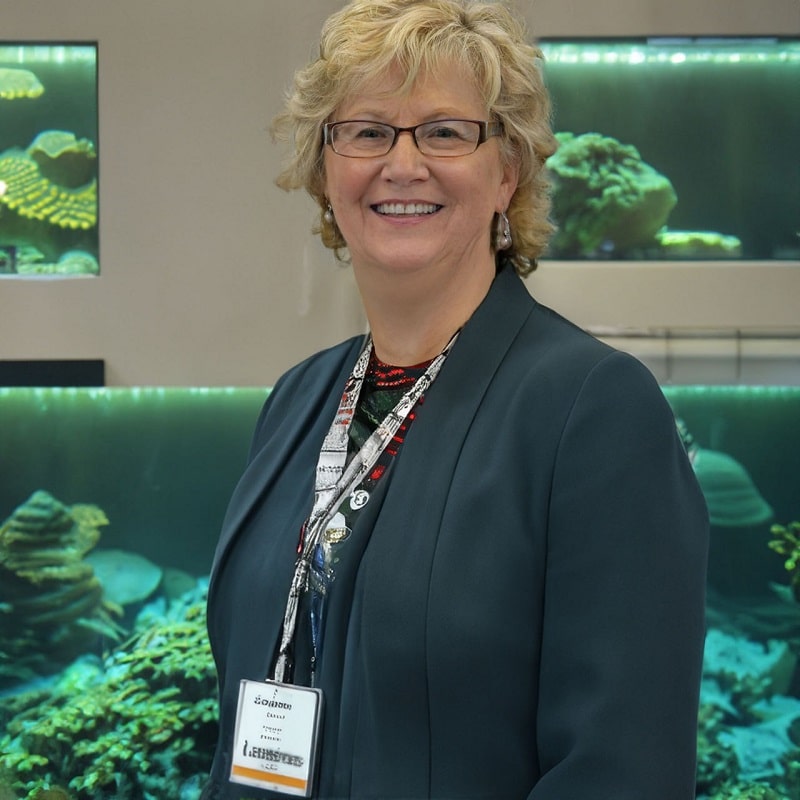Most people think that when they put a fish in their tank, the fish will automatically know how to feed and will eat whatever food is given to it.
However, this is not always the case. Some fish may refuse to eat or only eat certain types of food.
It is common for fish to refuse to eat at first. However, if your fish has not been eaten for an extended period, it is essential to investigate the cause.
There are several possible reasons why your fish may refuse food, some of which can be resolved relatively easily. This blog post will discuss some of the most common reasons for such behaviors and how you can get them back on track.
Why Are my Aquarium Fish Not Eating?

1. Not the right food
Your fish stop eating might be because you are feeding them the right type or enough food. Fish need various nutrients to stay healthy, and if they are not getting enough of one particular nutrient, they may stop eating.
Ensure you are feeding your high-quality fish food containing all the nutrients they need. You may also consider supplementing their diet with live foods such as brine shrimp or bloodworms.
2. Overfeeding
It is also possible to overfeed your fish, which can lead to health problems. If you feed your fish more than they can eat in a few minutes, they may stop eating altogether.
It is important to split various meals into small portions daily so that they do not become obese or sick.
3. Stress
Another reason why fish stop eating is because they are under stress. This can be caused by many things, including:
- overcrowding
- water temperature changes
- salinity changes,
- aggressive tank mates.
Make sure your tank is not too crowded, and the other inhabitants are compatible with each other before adding them to your aquarium.
Furthermore, when changing water or replacing the filter, make sure you do it gradually and avoid sudden shifts.
4. Pregnancy
Female fish may stop eating when they are pregnant. If you think your fish is pregnant or preparing to lay eggs, it is important to provide her with a safe and comfortable area where she can do so.
You may also need to increase the quality of her diet to support her during this time.
5. New Environment
If your fish has recently been moved to a new environment, they may be hesitant to eat until they have adjusted.
This is very common in beginner aquariums with newly added inhabitants. Be patient and allow the fish time to adjust before feeding them again.
6. Lack of Hunger/Appetite
Some fish simply do not have an appetite and will never start eating on their own.
In this case, you will need to take steps to stimulate their appetite so that they begin eating again. This might involve supplementing the diet with live foods or trying out different types of commercial foods until you find one that works.
7. Lighting
If your fish has lost its appetite, it may be because the lighting in its tank is too dim or too bright. Some fish have trouble seeing when there is not enough light to see clearly, and other fish are sensitive to light fluctuations.
In this case, use different lighting for your aquarium to improve your fish’s mood and stimulate their appetite.
How do I get my Fish to Eat?

Some fish are naturally shy and may need a little help getting started with eating. Here are a few tips to get your fish comfortable with eating:
Put food in their line of sight: Most fish will be more likely to notice and approach food in their line of sight. Try placing the food near the front of the aquarium so they can see it.
Use a variety of foods: Offering a variety of foods will not only provide your fish with essential nutrients but also encourage them to eat. Be sure to offer both live and frozen foods and flakes or pellets.
Some good options include fresh vegetables, protein-rich foods like shrimp or krill, and high-quality commercial foods formulated specifically for fish.
Soak the food: Another tip is to soak the food in water for a few minutes before feeding it to your fish, as this will make it taste better and easier for them to digest.
Feed small meals: Feeding small meals several times a day is better than one large feeding. This will help prevent overfeeding and also encourage fish to eat more often. It also helps keep their digestive system functioning optimally and makes their food more appealing.
Feeding habit: Try to feed them at the same time each day. Fish are creatures of habit and will start to expect food at certain times.
If you feed them randomly, they may not realize that there is food available and will go hungry.
Be patient: Some fish may take a little time to adjust to their new environment and get comfortable with eating. So give them a few days to settle in before you start worrying about their lack of appetite.
To keep your fish healthy and happy, it’s also essential to ensure that the water in their tank is clean and fresh. This can be achieved by performing regular water changes and using quality filtration products like filters or UV sterilizers.
Conclusion
Have you tried all of the above tips? If so, it might be time to rehome your fish. It’s not fair to keep a fish in an aquarium if it’s not going to eat and thrive. Before you do that, however, make sure you try one more thing: ask around.
Aquarium enthusiasts are often willing and able to help with advice on getting stubborn fish to eat. Who knows, maybe someone else has had the same issue as you and found a solution. Good luck!




